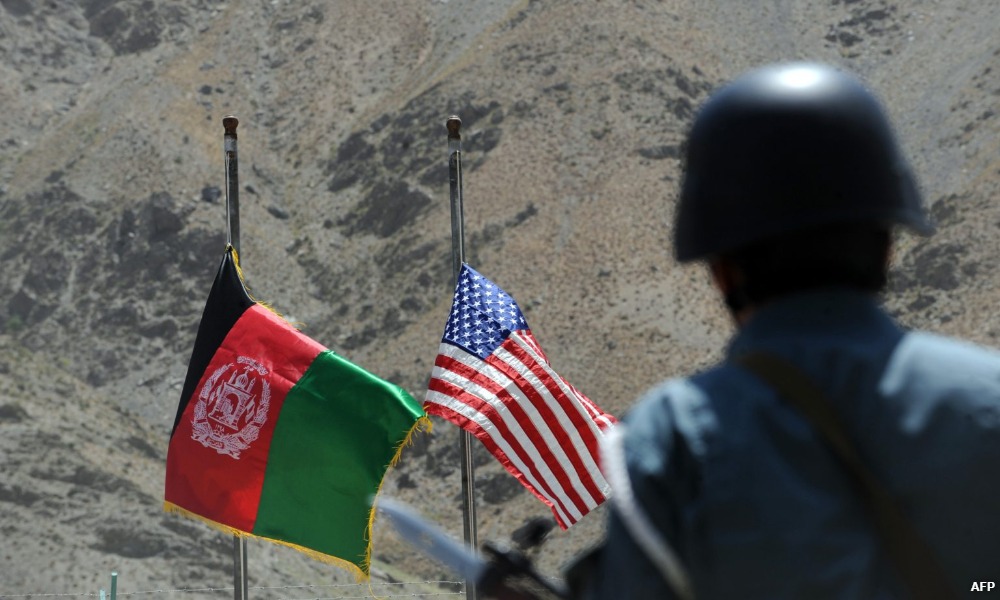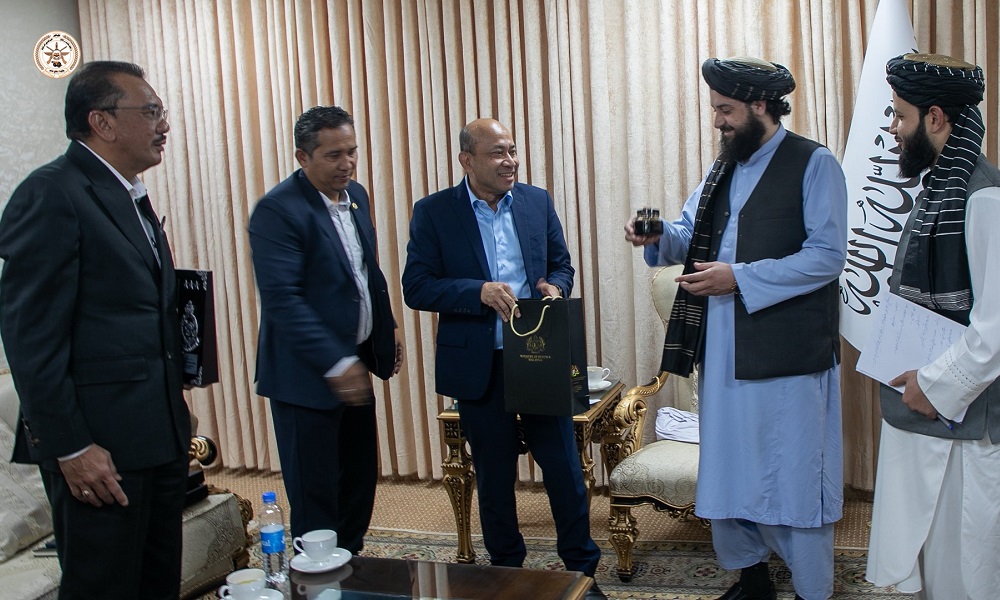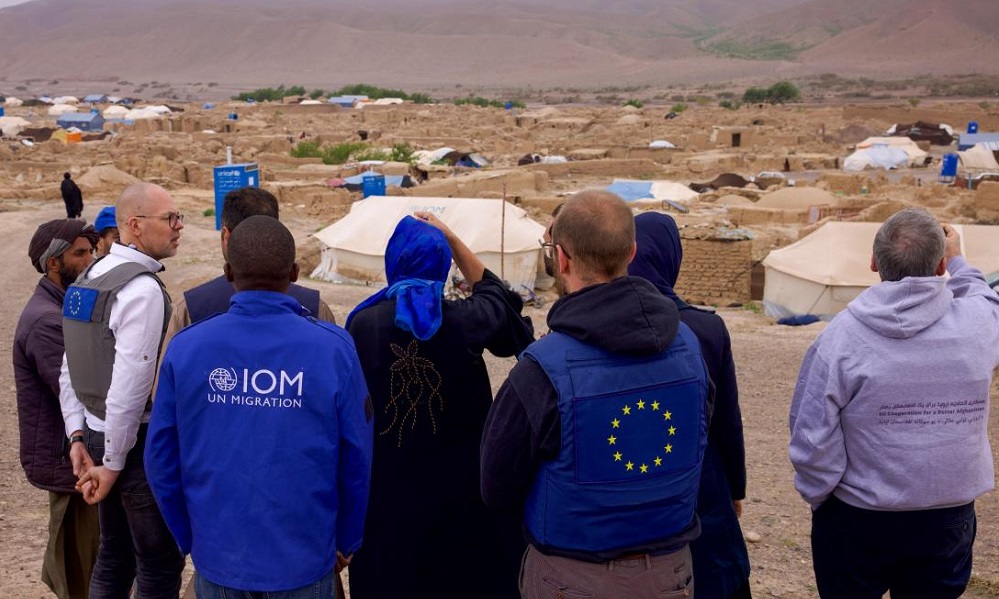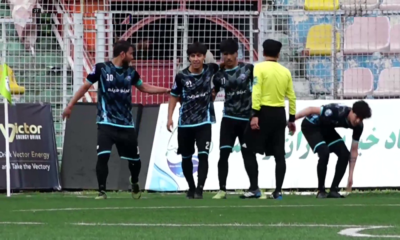Latest News
SIGAR warns of continued threat – with or without peace

The United States’ Special Inspector General for Afghanistan Reconstruction (SIGAR) warned on Wednesday night that security remains the most crucial and enduring high-risk area for Afghanistan and with or without a sustainable peace agreement and nationwide ceasefire, Afghanistan will likely continue to be threatened by multiple violent-extremist organizations.
Presenting SIGAR’s 2021 High-Risk List to US Congress, John F. Sopko, Special Inspector General for Afghanistan Reconstruction, said any political agreement risks subordinate groups going rogue, possibly manifesting as another insurgency or insecurity from criminal gangs or networks.
These issues could become even more pronounced if US forces are no longer in country to provide counterterrorism support and to train, advise, and assist Afghanistan’s security institutions, his report stated.
He said that in keeping with SIGAR’s statutory mandate to promote economy, effectiveness, and efficiency, the High-Risk List identifies serious risks to the United States’ $143 billion reconstruction effort in Afghanistan.
He also pointed out that this report is issued at a time when peace negotiations between the Afghan government and the Taliban are stalled amid continuing high levels of violence, putting the reconstruction effort at greater risk than ever before.
“As we note in this report, whether or not the United States continues to withdraw its troops from Afghanistan pursuant to last year’s withdrawal agreement with the Taliban, the new Administration and Congress will have to decide whether and to what extent reconstruction will continue.
“Although Afghanistan’s leadership have often stated that their goal is self-reliance, Afghanistan today is nowhere near to being self-reliant – especially in funding its government operations, including military and police – from its own resources.
“And, as highlighted in our report, reconstruction aid helps keep Afghanistan from reverting to a terrorist safe haven,” Sopko said.
He stated that “today the gains from our nation’s investment in Afghanistan’s reconstruction face multiple threats: continued insecurity, uncertain post-peace settlement funding, the challenge of reintegrating fighters, endemic corruption, lagging economic growth and social development, threats to women’s rights, the illicit narcotics trade, and inadequate oversight by donors.”
He also pointed out that the level of violence has increased, including not only attacks against Afghan security forces, but also bomb attacks on civilians and targeted assassinations of mid level officials, prominent women, and journalists.
In addition, the COVID-19 pandemic is overwhelming Afghanistan’s health sector and having a severe impact on its economy and people, he stated.
Sopko said this report is “intended to provide an independent and sober assessment of the various risks now facing the Administration and Congress as they seek to make decisions about the future of the U.S. mission in Afghanistan.”
The High-Risk List focuses on elements of the US reconstruction effort in Afghanistan that are essential to success; at risk of failure due to waste, fraud or abuse; and subject to the control or influence of the US government.
Key Factors
By using these criteria, SIGAR identified eight high-risk areas:
• Increasing Insecurity
• Uncertain Funding for a Post-Peace Settlement
• The Need to Reintegrate Ex-Combatants
• Endemic Corruption
• Lagging Economic Growth and Social Development
• Illicit Narcotics Trade
• Threats to Women’s Rights
• Inadequate Oversight
The report stated that while security remains the most crucial and enduring high-risk area for Afghanistan because the Taliban have not significantly changed their tactics, high levels of violence, or political objectives, and terrorist groups in Afghanistan such as Islamic State-Khorasan (IS-K/Daesh) and al-Qaeda remain in the country.
“With or without a sustainable peace agreement and nationwide ceasefire, Afghanistan will likely continue to be threatened by multiple violent-extremist organizations.
“Any political agreement risks subordinate groups going rogue, possibly manifesting as another insurgency or insecurity from criminal gangs or networks.
“These issues could become even more pronounced if US forces are no longer in country to provide counterterrorism support and to train, advise, and assist Afghanistan’s security institutions,” the report read.
It also noted that the long-term danger for Afghan women is that Afghan peace negotiations break down, plunging the country into worse violence. “Women and girls suffer not only loss of life, injury, disability, and mental trauma, but also the loss of male breadwinners, increasingly desperate poverty, the social stigma and discrimination that accompany widowhood and permanent disability, and reduced access to basic services.”
The SIGAR report also noted that there are between 55,000 and 85,000 Taliban fighters and that depending on the terms of a peace agreement, some Taliban fighters will be integrated into the Afghan National Defense and Security Forces; while others will need to transition to productive noncombatant status in civil society.
According to SIGAR, Afghanistan remains exceptionally reliant on foreign assistance – specifically with donor grants that total at least $8.6 billion per year which currently finances almost 80 percent of Afghanistan’s $11 billion in public expenditures.
“Afghanistan remains exceptionally reliant upon foreign assistance, creating both an opportunity for donors to influence events there as foreign troops depart and risks to a potential peace if they reduce assistance too much, too fast, or insist on conditions that cannot be achieved by the parties to the conflict,” the report read.
SIGAR also warned that the Afghan government’s limited fiscal capacity may be inadequate to sustain the infrastructure, such as roads, reliable power generation, and economic supply chains.
“The Afghan government’s lack of financial sustainability is an issue affecting all high-risk areas identified by SIGAR,” the report read.
SIGAR also noted that the detrimental effects of the illegal drugs trade in Afghanistan does not only affect the health system but also helps fund insurgents, foster corruption, and provoke criminal violence.
“Even in the midst of the COVID-19 pandemic, Afghanistan’s opium economy has remained resilient. The United Nations Office on Drugs and Crime reported that Afghanistan’s 2020 opium-poppy harvest was largely uninterrupted by COVID-19,” the report read.
Another key risk factor was government’s failure to effectively address systemic corruption in Afghanistan.
SIGAR stated the Afghan government has taken limited steps to curb systemic corruption, but more tangible action is required.
“The Afghan government often makes “paper” reforms, such as drafting regulations or holding meetings, rather than taking concrete actions that would reduce corruption, like arresting or enforcing penalties on powerful Afghans.”
Sopko meanwhile stated that regardless of the course chosen by the US, SIGAR, as the largest oversight presence in Afghanistan and the only one with whole-of-government authority, will remain the best US defense against the waste, fraud, and abuse of US taxpayer funds in Afghanistan.
Latest News
Tripartite trade meeting held in Kabul to boost regional connectivity

A tripartite meeting between the delegations of Afghanistan, Turkmenistan and Kazakhstan was held in Kabul with the aim of connecting North Asia to South Asia and reducing transit and transportation costs among these three countries, the Ministry of Trade and Commerce said in a statement.
In this meeting, an agreement was reached on the creation of a joint technical committee to continue the talks.
This tripartite meeting was held under the leadership of Nooruddin Azizi, the Acting Minister of Industry and Commerce, Vice President of Turkmenistan and Srik Zhumangarin, the Deputy Prime Minister of Kazakhstan.
Earlier, a bilateral meeting was held between the delegation of the Islamic Emirate and Turkmenistan. The ministry of commerce said the participants of the meeting discussed the construction of a large joint logistics center in Torghondi, the trilateral transit agreement between the IEA, Turkmenistan, and Kazakhstan, the expansion of Afghanistan’s railway, solving issues related to Afghan transit and export goods, and a number of other commercial issues.
Latest News
No destructive groups including Daesh present in Afghanistan: Yaqub Mujahid

Acting Minister of National Defense Mohammad Yaqub Mujahid has said that no destructive groups including Daesh have physical presence in Afghanistan, adding the Islamic Emirate of Afghanistan (IEA) will not allow anyone to pose threat to any country in the region from the Afghan soil.
Mujahid made the remarks in a meeting with a delegation from Malaysia in Kabul on Thursday.
According to a statement released by the Ministry of Defense, Mujahid highlighted Malaysia’s “good treatment” of Afghan refugees and its long-standing relations with Afghanistan, and said that Malaysia is a powerful Islamic country and visits should increase.
He added that with the establishment of the Islamic Emirate, occupation and war ended in Afghanistan, and the country is fully secure.
Based on the statement, the Malaysian delegation called Afghanistan a friendly country and while emphasizing on comprehensive cooperation, it assured that what they have seen in Afghanistan will be shared with the authorities of their country.
Latest News
EU allocates 17 million euros to support Afghans on the move

The European Union signed an agreement worth 17 million euros with the International Organization for Migration (IOM) to improve access to basic services, increased economic opportunities and protection for Afghans on the move and their host communities in Afghanistan.
The needs of women and girls are a particular focus of the programme, EU said in a statement released on Thursday.
The statement noted that from January 2023 until April 2024, over 1.5 million Afghans returned from Pakistan and Iran.
“I am deeply moved by the hardship returnees face when being deported to Afghanistan. In a country suffering from poverty and climate change, and in a city that just saw devastating earthquakes, this truly is a crisis within a crisis.”, said Peteris Ustubs, Director for the Middle East, Asia and Pacific of the European Commission’s Department for International Partnerships during the signing ceremony at the IOM transit centre in Herat.
Raffaella Iodice, EU Chargée d’Affaires a.i. to Afghanistan, added “The solidarity of the Afghan people towards their brothers and sisters is an inspiration. We must assure that communities hosting and helping new arrivals are supported. The partnership with IOM ensures access to essential services and provides protection for Afghan returnees and their host communities. As women and girls can be particularly affected, we make sure that all members of society can benefit”.
“IOM’s continued partnership with the EU has been critical in enabling our teams to reach hundreds of thousands of Afghan returnees and other vulnerable communities in the country”, said IOM Afghanistan Chief of Mission, Maria Moita. “Thanks to this renewed commitment, we will be able to focus on addressing the immense challenges in the areas of return and contribute to reintegration, social cohesion, and longer-term solutions for those communities.”
This additional contribution is part of a 5-year programme that is being implemented across Afghanistan and in four countries in the region. It builds on the EU’s previous support to IOM to improve the wellbeing of Afghans forced to return to the country, EU said.
-

 Latest News3 days ago
Latest News3 days agoRashid Khan named AWCC’s brand ambassador
-

 Regional4 days ago
Regional4 days agoIranian president lands in Pakistan for three-day visit to mend ties
-

 Sport4 days ago
Sport4 days agoKolkata beat Bengaluru by one run in IPL as Kohli fumes at dismissal
-

 Sport5 days ago
Sport5 days agoACL: Aino Mina 3-0 Istiqlal Kabul; Attack Energy 3-0 Khadim
-

 Climate Change5 days ago
Climate Change5 days agoRescuers race to reach those trapped by floods in China’s Guangdong
-

 World4 days ago
World4 days agoMalaysian navy helicopters collide in mid-air, 10 killed
-

 Sport3 days ago
Sport3 days agoJaiswal ton powers Rajasthan to big IPL win
-

 Sport4 days ago
Sport4 days agoMawj Sahil player scores stunning halfway line goal in 1-0 win over Jawanan Wahedi
























